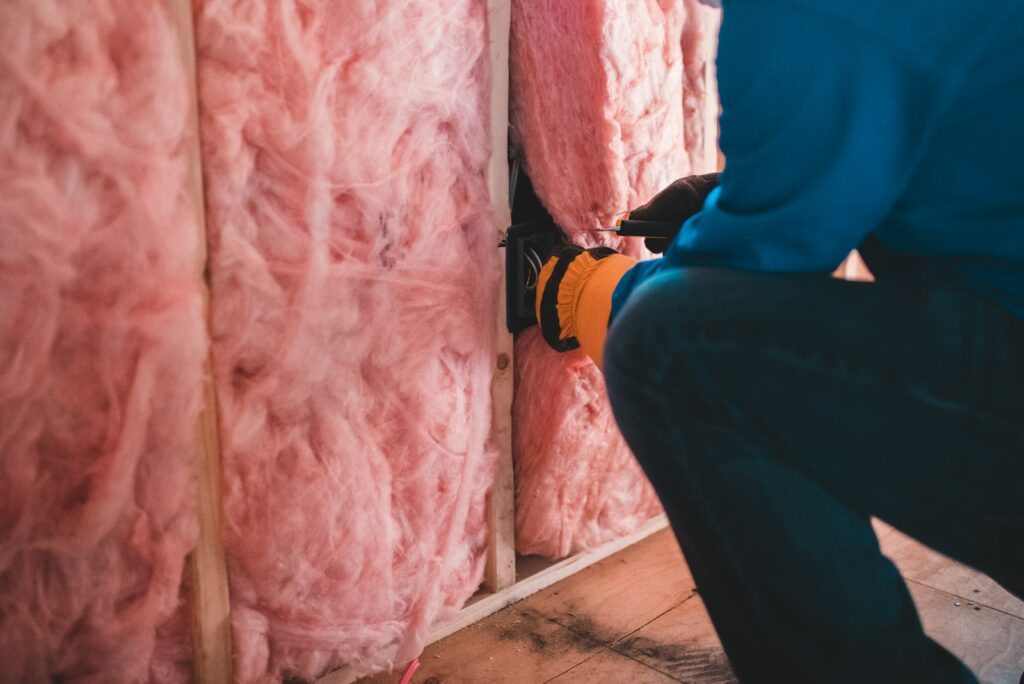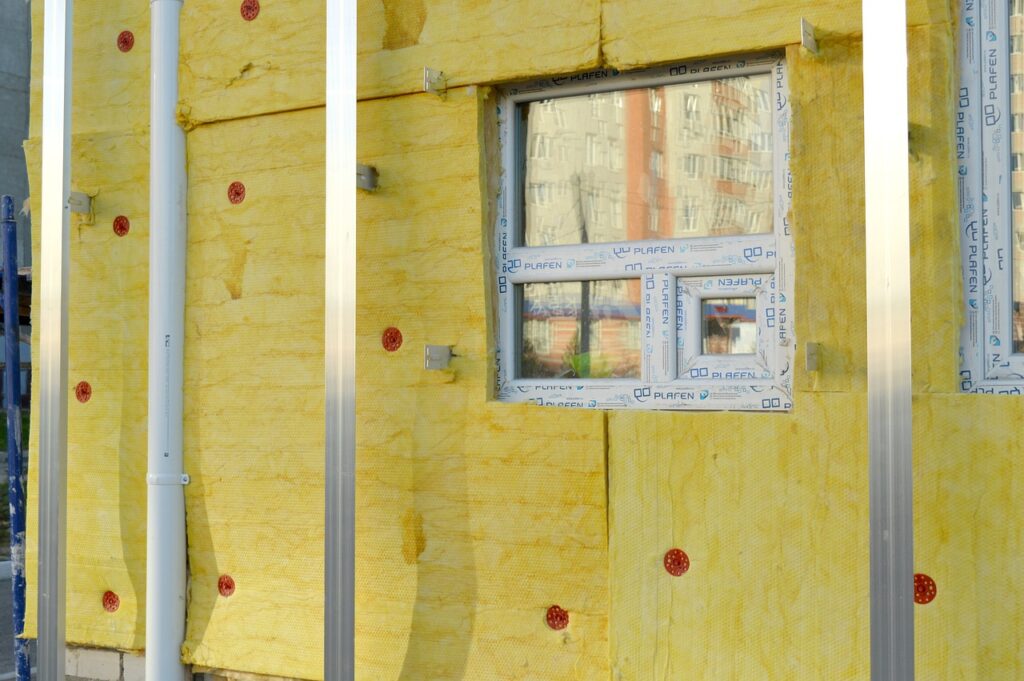Eco-Friendly Insulation: How Denver Homeowners Are Reducing Energy Bills and Embracing Sustainable Solutions

As sustainability becomes a growing priority in the fight against climate change, more homeowners in Denver are adopting eco-friendly practices to reduce their carbon footprint. One of the most impactful ways to do this is by improving home insulation, which not only contributes to a greener environment but also reduces energy consumption and lowers utility bills. With Denver’s fluctuating climate, having proper insulation is key to maintaining comfortable indoor temperatures year-round. Companies such as MTZ Insulation LLC have been at the forefront of this shift, helping homeowners explore eco-friendly insulation options that align with both their energy-saving goals and environmental values.
Eco-friendly insulation solutions are quickly gaining popularity due to their effectiveness in cutting energy costs and reducing greenhouse gas emissions. This article will explore how Denver homeowners are embracing these sustainable solutions, the benefits of eco-friendly insulation, and the impact it has on both energy efficiency and the environment.
The Importance of Eco-Friendly Insulation for Energy Efficiency
Denver’s unique climate, with its hot summers and cold winters, makes energy efficiency a priority for homeowners. Poor insulation can lead to significant energy loss as heat escapes during the winter and air conditioning struggles to keep homes cool in the summer. According to the U.S. Department of Energy, about 49% of the energy used in homes is spent on heating and cooling. This means that improving insulation can drastically reduce energy consumption, leading to lower utility bills and a smaller environmental footprint.
Eco-friendly insulation, such as materials made from recycled or renewable resources, offers superior performance while being less harmful to the environment. Some of the most common types of sustainable insulation include cellulose, made from recycled paper, and sheep’s wool, which is naturally fire-resistant and biodegradable. Not only do these materials provide excellent thermal performance, but they also reduce the demand for energy-intensive synthetic materials traditionally used in insulation.
A study by the Environmental and Energy Study Institute found that homes with proper insulation can save up to 20% on energy bills. Denver homeowners who work with companies like MTZ Insulation can benefit from these energy savings while also making a positive impact on the environment by reducing their reliance on fossil fuels for heating and cooling.
Reducing Carbon Footprints Through Sustainable Insulation
Eco-friendly insulation doesn’t just reduce energy bills; it also plays a critical role in minimizing a home’s carbon footprint. The production of traditional insulation materials, such as fiberglass or foam, often involves energy-intensive processes and the use of non-renewable resources. In contrast, eco-friendly insulation options are produced with minimal environmental impact and can even help reduce waste by using recycled materials.
Cellulose insulation, for example, is made from up to 85% recycled paper and has a lower embodied energy than synthetic alternatives. This means that less energy is required to produce and transport the material, contributing to a lower overall carbon footprint for homeowners who choose this option. Similarly, cotton insulation, often made from recycled denim, offers a renewable alternative that is safe to handle and free from harmful chemicals.
A 2021 report by the National Association of Home Builders indicated that 60% of homeowners are interested in sustainable building materials, with insulation being a key area of focus. In Denver, where environmental consciousness is on the rise, this trend is particularly strong. Homeowners who choose eco-friendly insulation are not only reducing their own energy use but also contributing to the broader goal of lowering carbon emissions in the residential sector.
Health and Environmental Benefits of Eco-Friendly Insulation
Beyond its energy-saving and carbon-reducing properties, eco-friendly insulation offers additional health and environmental benefits. Traditional insulation materials, such as fibreglass and foam, can contain volatile organic compounds (VOCs) and other chemicals that may pose health risks when inhaled. In contrast, sustainable insulation options are often free from harmful chemicals and provide better indoor air quality.
Sheep’s wool, for example, is a natural insulation material that absorbs moisture and helps regulate indoor humidity levels, preventing the growth of mold and mildew. Its natural fire-resistant properties also make it a safer option for homes. Cotton insulation, another eco-friendly choice, is non-toxic and can be installed without the need for protective equipment, reducing the risk of exposure to hazardous fibers.
According to the U.S. Environmental Protection Agency (EPA), improving indoor air quality can lead to better health outcomes, particularly for individuals with respiratory issues or allergies. By choosing eco-friendly insulation, Denver homeowners can create healthier living environments for their families while also minimising the impact on the planet.
The environmental benefits of sustainable insulation extend beyond the home itself. Because these materials are often made from renewable or recycled resources, they contribute to the reduction of waste in landfills and decrease the demand for energy-intensive production processes. This makes eco-friendly insulation a win-win solution for both homeowners and the environment.
Cost Considerations and Long-Term Savings
While the upfront cost of eco-friendly insulation may be higher than traditional options, the long-term savings make it a worthwhile investment. The reduced energy consumption resulting from proper insulation can lead to significant savings on utility bills over time, often offsetting the initial installation costs. According to the U.S. Department of Energy, homeowners can save up to 15% on heating and cooling costs by upgrading to high-performance insulation.
Additionally, eco-friendly insulation materials tend to have a longer lifespan than conventional options, which means fewer replacements and lower maintenance costs over the life of the home. For instance, cellulose insulation is known for its durability and resistance to pests, while sheep’s wool can last for decades without losing its insulating properties.
Denver homeowners who partner with MTZ Insulation can expect expert guidance in selecting the most cost-effective and energy-efficient insulation solutions for their homes. These professionals can help homeowners understand the long-term financial and environmental benefits of investing in eco-friendly insulation, ensuring that the chosen materials align with both their budget and sustainability goals.
The availability of federal and state incentives for energy-efficient home improvements further enhances the affordability of eco-friendly insulation. The federal Residential Energy Efficiency Tax Credit, for example, allows homeowners to claim a tax credit for a portion of the cost of installing energy-efficient insulation. By taking advantage of these incentives, Denver homeowners can make sustainable choices without breaking the bank.

Conclusion
As energy costs continue to rise and environmental concerns grow, Denver homeowners are increasingly turning to eco-friendly insulation as a sustainable solution for reducing their energy bills and minimising their carbon footprints. With the help of companies like MTZ Insulation, homeowners can explore a range of sustainable insulation options that offer superior energy efficiency, improved indoor air quality, and long-term savings.
By embracing eco-friendly insulation, Denver residents are not only enhancing the comfort and health of their homes but also contributing to a larger movement toward sustainability. With a variety of materials available—from recycled cellulose to natural wool—there are options to suit every home and every budget. As more homeowners make the switch to sustainable solutions, the future of energy-efficient living in Denver looks brighter than ever. As the demand for eco-friendly home solutions grows, so does the range of innovative insulation options available, making it easier than ever for homeowners to make environmentally conscious choices. By reducing energy consumption and embracing sustainable practices, Denver homeowners are playing an important role in fostering a greener future for their community and beyond.

















